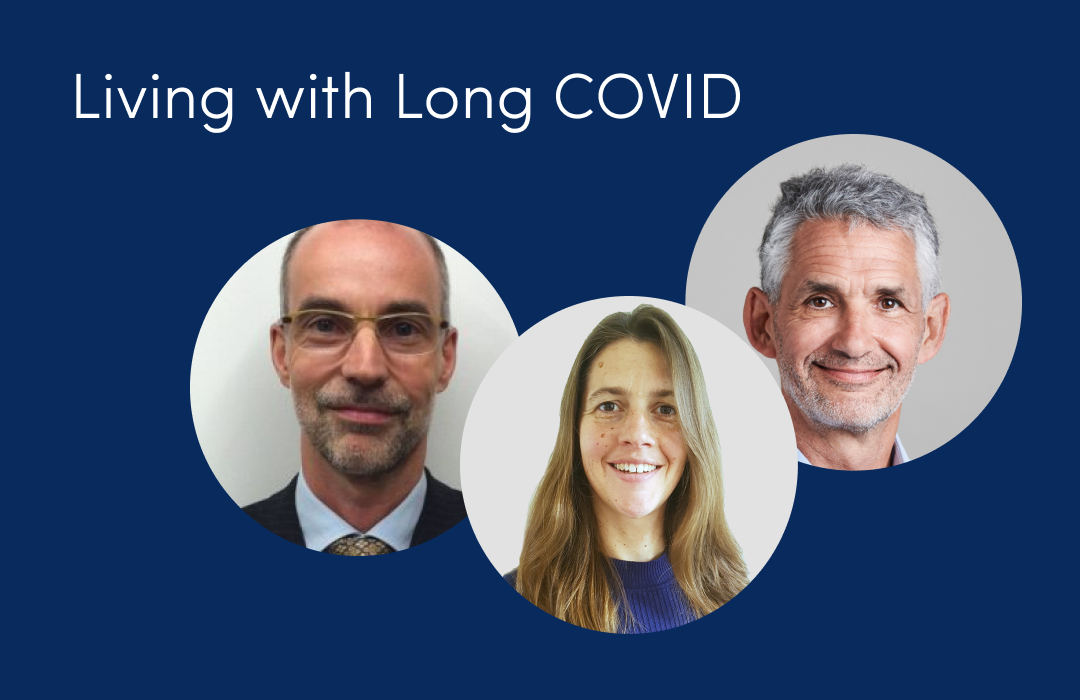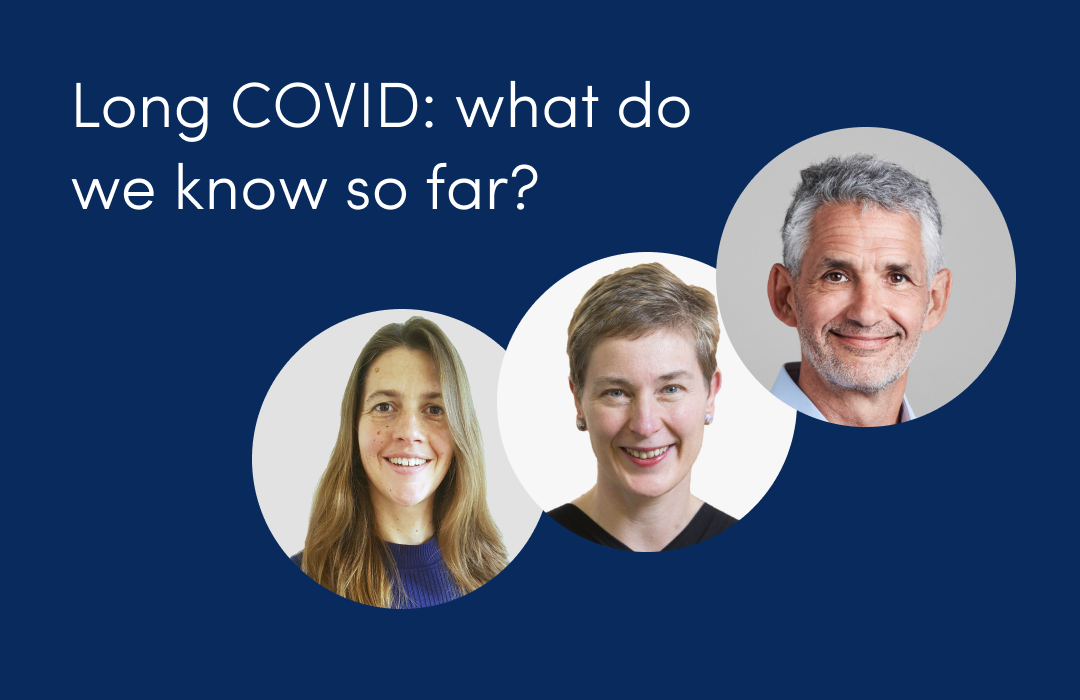
Full results of our mental health survey
May 25, 2021

This article has not been updated recently
- The feel better factors
- The feel worse factors
- How did COVID-19 change our behaviours associated with mental health?
- Habits associated with lower anxiety and depression
- Habits associated with higher anxiety and depression
- Join our webinar to find out more about mental health and COVID-19
Back in February, we launched a survey through the ZOE COVID Study app to find out more about how the pandemic has affected mental health and how best to support you.
As well as asking about how your life and habits had changed during COVID-19, we also asked you to tell us to self-report how you were feeling.
We then used this information to calculate anxiety and depression scores during the pandemic and compared these to before the pandemic.
In total we analysed data from more than 700,000 of you who took part - thank you! Here’s what we found.
The ‘feel better’ factors
Overall, we found several activities that people did more of during the pandemic were strongly associated with lower anxiety and depression scores. These ‘feel good’ activities were also those most commonly reported by respondents:
- Spending more time in green spaces such as gardens, parks or the countryside
- Being physically active or exercising more
- Talking more to family and friends over the phone or online
Practising relaxation or mindfulness techniques were moderately associated with lower anxiety and depression scores, along with taking part in organisations and clubs, seeing friends and family face-to-face, and snacking less during the pandemic.
We also found that drinking alcohol less often and sleeping better were associated with lower anxiety and depression scores, although this link wasn't as strong compared with other activities.
The ‘feel worse’ factors
We found several activities that people did during the pandemic which were moderately associated with higher anxiety and depression scores.
- Spending less time with pets
- Smoking or vaping more
Spending more time using devices with a screen also correlated with increased anxiety and depression scores, although less strongly compared with other activities.
People who said they had been smoking or vaping more during the pandemic also frequently used devices with a screen more often, snacked more, and did less physical activity.
And those who reported spending less time with pets also tended to use devices with a screen more, engaged less with organisations or clubs, and were less physically active.
How did COVID-19 change our behaviours associated with mental health?
The pandemic and lockdown restrictions have had a big impact on all our lives. So although we know that certain activities are associated with improving our anxiety and depression scores, it hasn’t necessarily been easy for people to do them.
Here’s how it all breaks down, based on the results of our survey:
Habits associated with lower anxiety and depression

Physical activity and exercise
Being more physically active or exercising more was strongly associated with lower anxiety and depression levels. 39% of people reported being less active during the pandemic, 25% had no change and 37% did more.
Reporting more of this activity was often linked to spending more time in green spaces, talking more to family and friends via the phone or technology, and an increase in relaxation, mindfulness and meditation.

Getting outside
Spending more time in green spaces like gardens, parks and the countryside was strongly associated with lower anxiety and depression scores. Overall, 44% of people had managed to spend more time in green spaces during the pandemic, while 28% reported no change and 27% had less compared to before the pandemic.
Reporting more of this activity was often linked to talking more to family and friends via the phone or technology, being more physically active or exercising more, and an increase in relaxation, mindfulness and meditation.

Sleep
Sleeping well more often was mildly associated with lower anxiety and depression levels. 37% of people reported sleeping less well during the pandemic, 47% had no change and 16% reported sleeping better.
Reporting more of this activity was often linked to talking more to family and friends via the phone or technology, being more physically active or exercising more, and spending more time in green spaces.

Socialising and catching up with friends and family
Talking more to friends and family on the phone or online was strongly associated with lower anxiety and depression. 64% of people reported doing this more during the pandemic, 25% didn’t change and 11% did it less often.
Reporting more of this activity was often linked to an increase in relaxation and mindfulness, being more physically active or exercising more, and spending more time in green spaces.
Having more face-to face interactions with family and friends was moderately associated with lower anxiety and depression scores. 3% of people said they had spent more time in person with family and friends during the pandemic, 5% reported no change and 92% said they had spent less.
Reporting more of this activity was often linked to talking more to family and friends via the phone or technology, being more physically active or exercising more, and spending more time in green spaces.
Engaging with organisations like social clubs more often was moderately associated with lower anxiety and depression. 8% of people said they did this more during the pandemic, 34% reported no change, and 58% engaged less often.
Reporting more of this activity was often linked to talking more to family and friends via the phone or technology, being more physically active or exercising more, and spending more time in green spaces.

Relaxing
Practising relaxation techniques like mindfulness or meditation were moderately associated with lower anxiety and depression levels. 23% of people told us they had used these techniques more often during the pandemic, 51% reported no change and 26% had used them less often.
Reporting more of this activity was often linked to talking more to family and friends via the phone or technology, being more physically active or exercising more, and spending more time in green spaces.
Snacking
Eating fewer sugary or savoury snacks was moderately associated with lower anxiety and depression scores. 47% reported snacking more during the pandemic, while 45% said they hadn’t changed their snacking habits and 8% snacked less.
Reporting more of this activity was often linked to talking more to friends and family via phone or technology, being more physically active or exercising more, and spending more time in green spaces
Habits associated with higher anxiety and depression

Screen time
Spending more time using devices with screens was mildly associated with higher anxiety and depression scores. 83% of people said they had spent more time using screens during the pandemic, 16% reported no change and only 1% reported less.
Reporting more of this activity was often linked to eating savoury snacks or confectionery more, being less physically active or exercising less, and engaging in organisations and social clubs less.
Smoking or vaping
Smoking or vaping more was moderately associated with higher anxiety and depression. 26% of people said they had been smoking or vaping more during the pandemic, 62% reported no change, and 12% had cut down.
Reporting more of this activity was often linked to eating more savoury snacks or confectionery, being less physically active or exercising less, and using devices with a screen more.
Alcohol
Drinking less alcohol was mildly associated with lower anxiety and depression scores. During the pandemic, 31% said they had been drinking more, while 46% reported no change and 23% drank less.
Reporting more of this activity was often linked to eating savoury snacks or confectionery more, being less physically active or exercising less, and engaging in organisations and social clubs less.
Not seeing our pets
Spending less time with pets was moderately associated with higher anxiety and depression scores. Fortunately for our furry friends, 53% of people said they had been able to spend more time with their pets during the pandemic, 43% had no change and only 4% reported less.
Reporting more of this activity was often linked to using devices with a screen more, being less physically active or exercising less, and engaging in organisations and social clubs less.
Join our webinar to find out more about mental health and COVID-19
We’re bringing ZOE COVID Study researchers Prof. Tim Spector and Dr. Claire Steves together with leading mental health experts for our next webinar to talk about the findings from the survey and how best to support mental health during COVID-19 and beyond.
The webinar will be broadcast live on Youtube and Facebook -make sure you subscribe to us to receive the notifications! Or you can catch up afterwards on our YouTube channel, along with all our other expert webinars.
To find out more about how you can look after your mental health during the pandemic and beyond, check out our five tips for better mental health and these useful resources from the Mental Health Foundation.












.png)


.jpg)














.png)







%202.png)
.png)


















.png)



%20(1).png)


